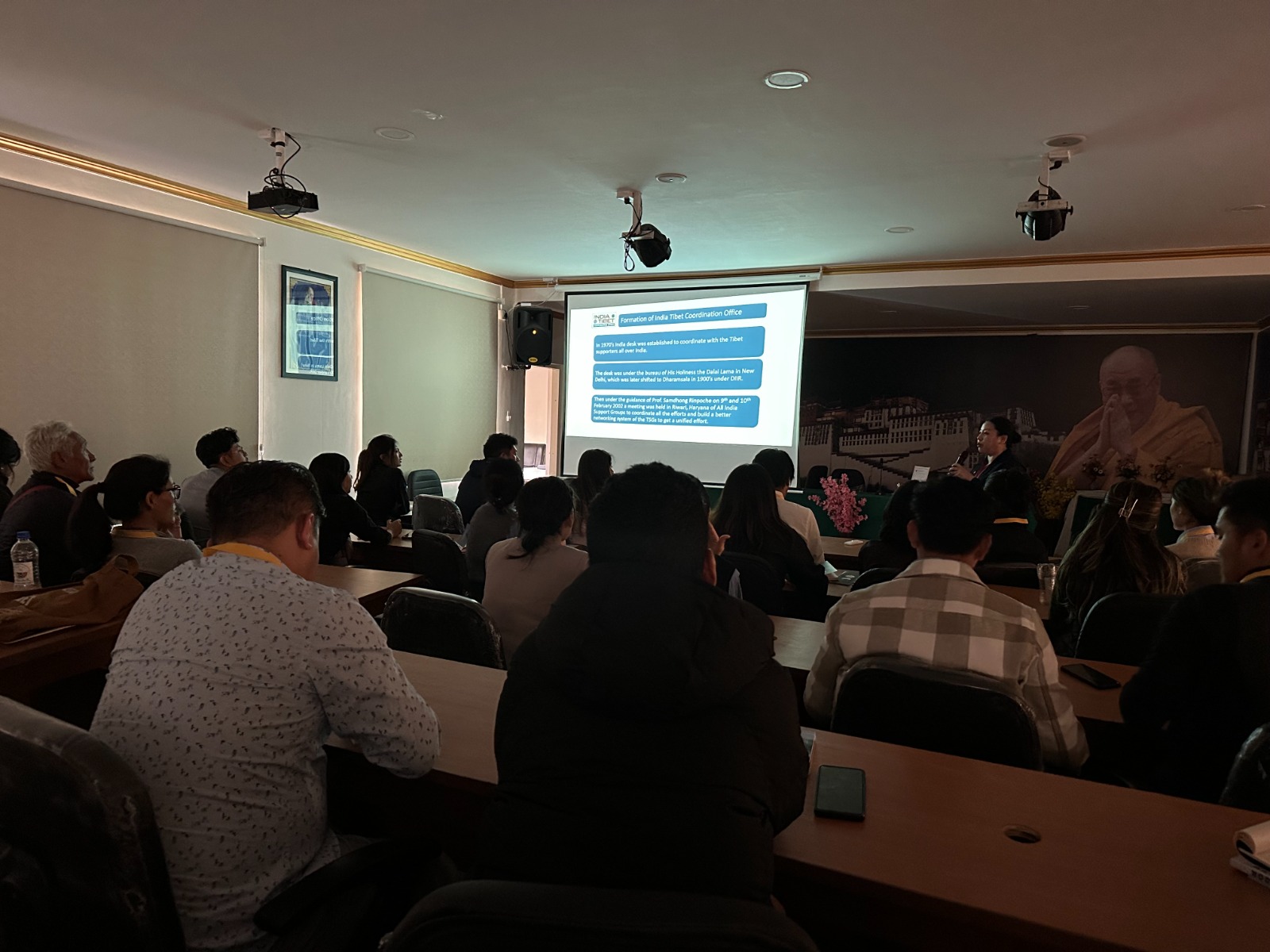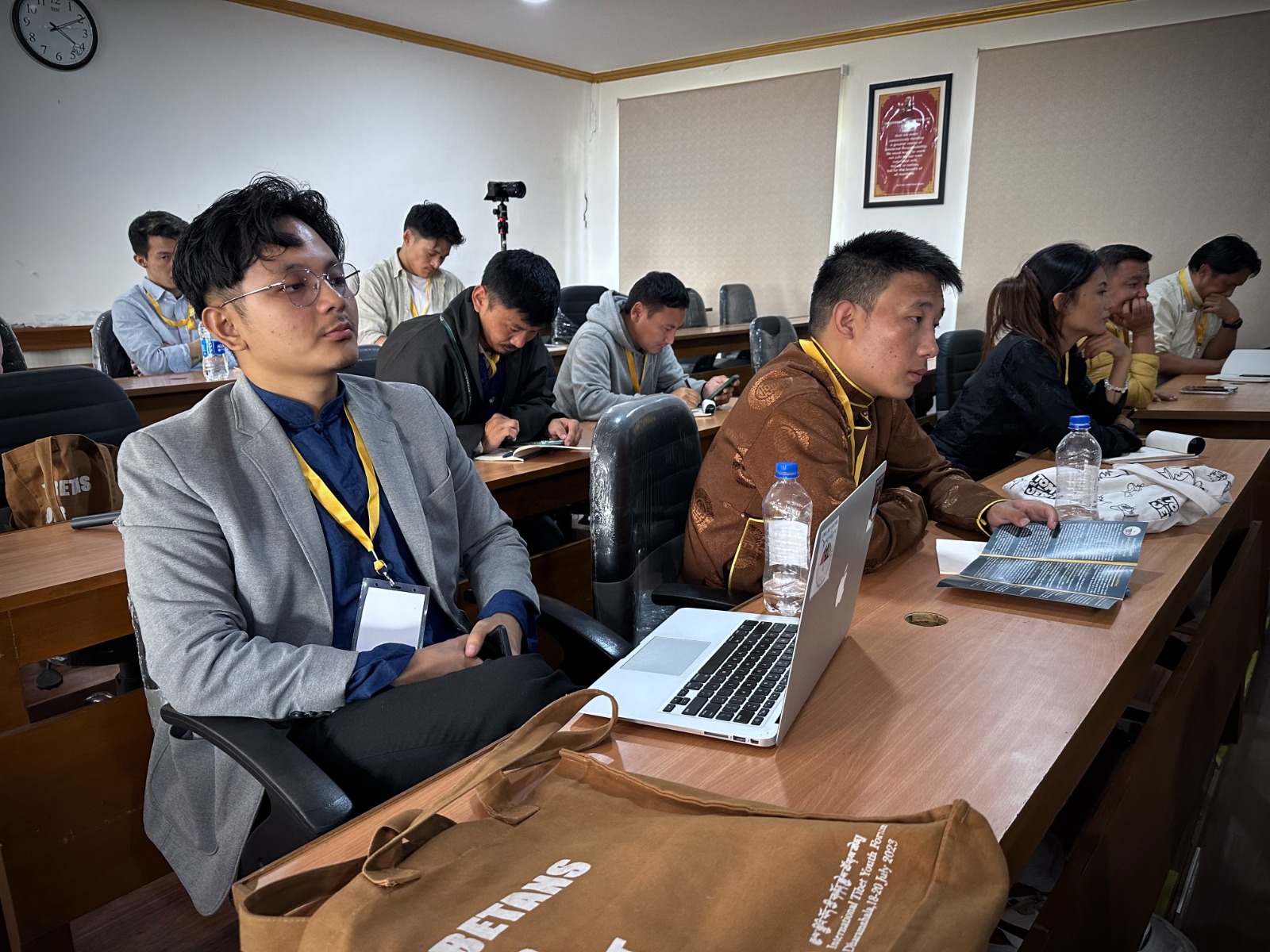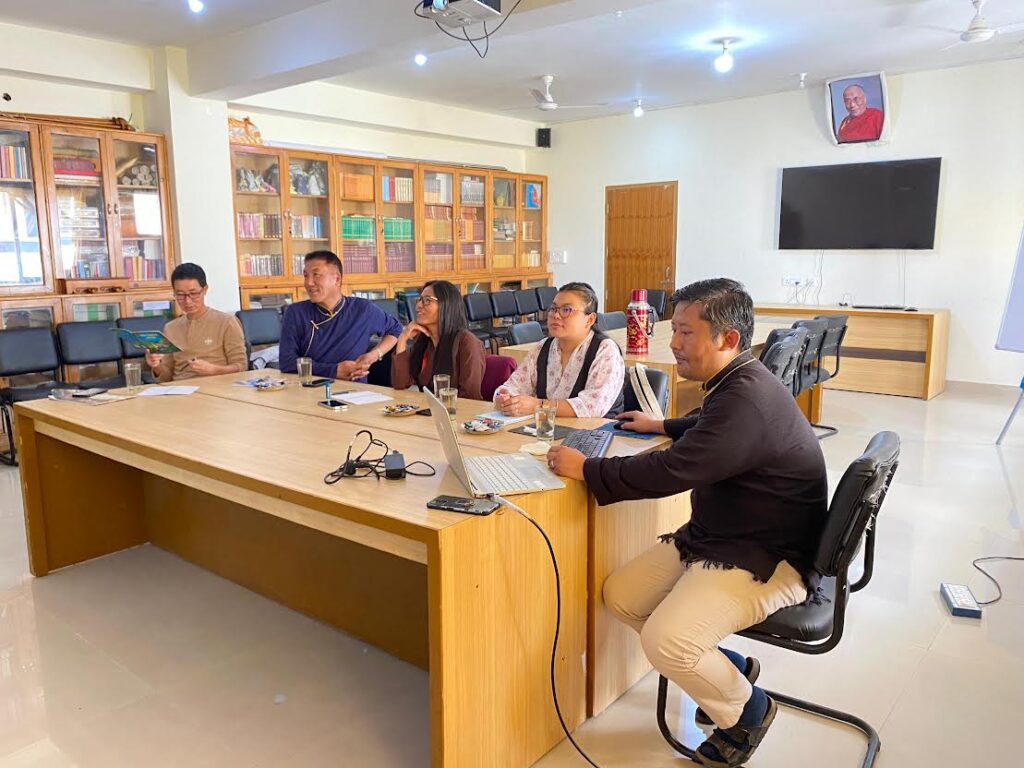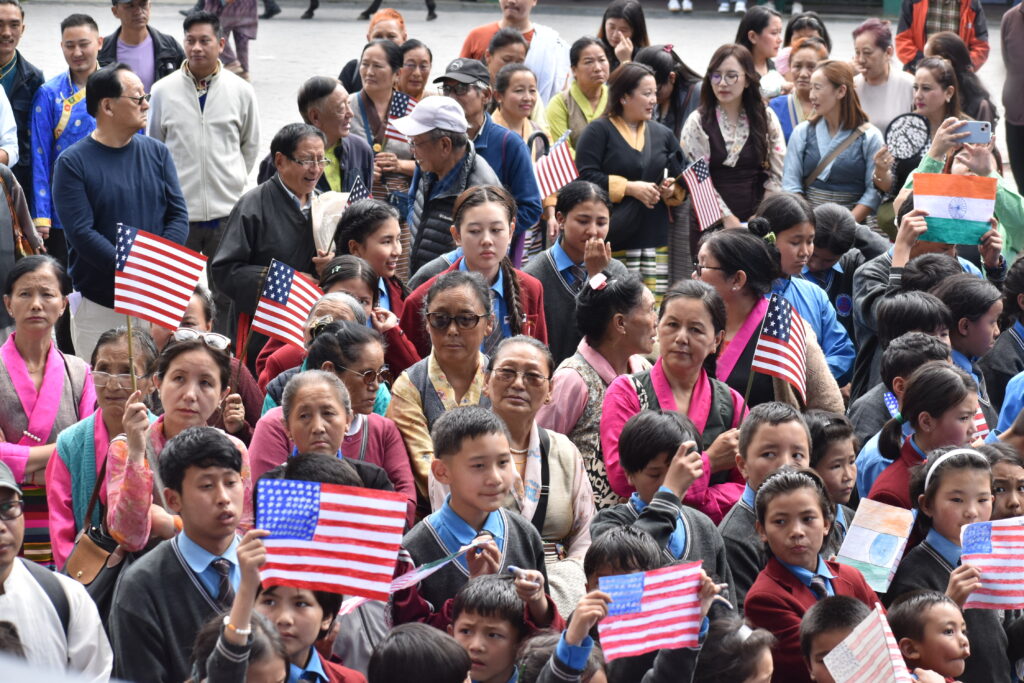
V-TAG India Strategic Meeting Concludes, Adopts Concrete Action Plans for Tibet Advocacy.
Dharamshala: The Department of Information and International Relations successfully concluded the three-day India V-TAG Strategic Meeting and Training on 15 November with the adoption of a consolidated India-specific Tibet advocacy action plan for the months ahead. During the course, participants are divided into three regional groups based on their location. There are groups in Dharamshala, New Delhi in North India, and one in South India. Having held a rigorous discussion, the three groups have developed a specific advocacy calendar with advocacy action plans that are specifically intended to be carried out on specified dates and international holidays.
Venerable Samdong Rinpoche, honourable Kalon Trisur, and Shri Kishan Kapoor, a Lok Sabha member and Tibet supporter, attended the inaugural session of the meeting-cum-training, along with Additional Secretary Tenzin Lekshey (official Spokesperson of the Central Tibetan Administration) and Chief Representative Officer of Shimla, Tsewang Phuntsok. It was also attended by 33 India-based V-TAG members and facilitators from the DIIR’s Tibet Advocacy Section.
The Chief Representative Officer of Shimla, Tsewang Phuntsok and Tashi Dickyi, staff of the India Tibet Coordination Office (ITCO), New Delhi, provided the participants with an overview of advocacy in India following the inaugural session. They have rich experience of advocating Tibetan issues in meetings with regional Indian leaders and have conducted Tibet awareness programmes for Indian citizens as well as university students throughout India.
On the second day of the conference, Tenzin Lekshay, the Additional Secretary of the Department of Information and International Relations, CTA, introduced V-TAG and discussed the need for such initiatives. Following this, Rinchen, Staff at the Tibet Advocacy Section, Department of Information and International Relations, and Coordinator for V-TAG India, provided an overview of the Tibet Advocacy Action Plan adopted during the International Tibet Youth Forum held from 18-20 July 2023. Participants engaged in active question and answer sessions at the end of the session, which culminated with insightful questions being raised by the participants, which the speakers addressed during the discussion.
The remainder of the day was dedicated to participants indulging in in-depth discussions about the Action Plan and developing a practical, realistic, and concrete action plan tailored to India. The participants, divided into three groups, engaged in an exhaustive discussion in which each individual presented his or her thoughts and shared their experience to contribute to the development of the action plan.
During the final day of the meeting on 15 November, former political prisoner of Tibet, Venerable Ngawang Woebar, shared his personal experiences of protesting inside Tibet against Chinese repression, followed by a short period of detention in Chinese prisons. He also explained the critical situation inside Tibet pertaining to the survival of Tibetan identity in the form of language, culture, religion, and the environment under the policies of the Chinese government. In his speech, Ngawang Woebar encouraged Tibetan youth to actively engage with diverse individuals and the Indian public to bring to their attention the issue of Tibet and the Tibetan people’s struggle. The participants actively asked numerous questions which extended beyond the allotted time. Tenzin Kunkhen of the Department of Information and International Relations apprised the participants on the critical current situation inside Tibet specifically on the Human Rights violations. In his presentation, he explained several case studies of human rights violations, including religious repression, language and cultural assimilation, arrest and detention and political prisoners inside Tibet.
A joint and consolidated Action Plan for India was adopted at the conclusion of the meeting. It was compiled from drafts submitted by all three groups, demonstrating a collaborative effort towards a common goal. Additional Secretary Tenzin Lekshay expressed his sincere appreciation for the participation of V-TAG members in India at this first India V-TAG Strategic Meeting and Training, as well as their active participation in the discussions and valuable contributions to the Tibetan movement made by the younger generation.
-Filed by the Tibet Advocacy Section, DIIR

Additional Secretary Tenzin Lekshey of DIIR giving brief introduction and role of V-TAG.

Chief Representative Officer, Shimal giving speech on the Advocacy in India.

Tashi Dickyi, staff of the India Tibet Coordination Office (ITCO), New Delhi, giving an overview of advocacy in India.

Gen Ngawang Woebar la’s talk.

Tenzin Kunkhen of the DIIR.

Rinchen of the DIIR giving introduction on the International Tibet Youth Forum Action Plan.

Participants listening to a talk.





